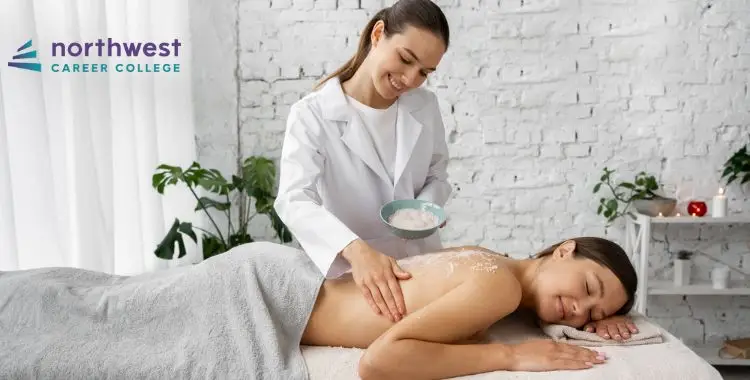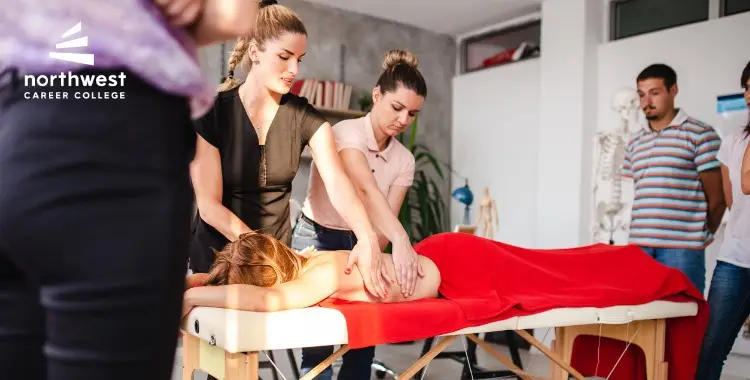Massage Therapy and Its Impact on Mental Health
- Massage Therapy
- March 12, 2024
- 4.3k views
- 5 min read

Table of Contents
Introduction
Massage therapy involves the controlled manipulation of the body’s soft tissues, such as muscle fascia and skin. Massage techniques are highly variable and can be applied with hands, fingers, elbows, and forearms (most common in Western techniques), as well as knees, feet, or specialized devices/tools.
Massage therapy is generally used for relaxation purposes or for the treatment of body stress or pain. More recently, it has been recognized for its positive impacts on mental health. Different techniques have been optimized to serve various purposes and goals for clients, and the overall trend is clear: people continue to invest more in self-care, leading to the growth of the massage industry.
Understanding Massage Therapy
There is a wide variety of Massage Therapy techniques in practice today. The most commonly known and used massage technique in the United States today is Swedish massage. This massage incorporates relaxation and therapeutic elements and is traditionally the first technique taught in most massage therapy schools.
Other advanced or specialized techniques commonly used in the United States include deep tissue, aromatherapy, and hot stone massage.
Deep tissue typically utilizes firm pressure and focuses on specific areas of tension, applying pointed pressure using thumbs or elbows to release “trigger points” within major muscles. It also focuses not only on superficial muscles (i.e., those on the surface of the body) but rather expands its focus to include those that lie “deep” to other muscles, hence its name.
Aromatherapy deploys essential oils of various types and scents to induce reactions within the client, such as relaxation or invigoration. It can be used as a standalone technique but is commonly combined with other massage techniques. Hot stone massage deploys hot river stones or rocks heated in a warm water bath to a sufficient temperature so that the heat can assist the therapist in relaxing tense, hypertonic muscles. Similar to aromatherapy, it can be used as a standalone technique but is often used in combination with other techniques.
Other techniques, such as shiatsu, ayurveda, and Thai massage, are becoming increasingly popular as American consumers become more educated about the options available to them. Each technique has specific strengths and objectives that may be better suited to a specific individual’s needs or goals.
The Physical Benefits of Massage
Massage therapy has several direct physical benefits that can help reduce muscle tension and relieve pain.
First, massage improves circulation to areas of muscle tension. Massage therapy can directly push blood into congested areas in greater volumes. Physical stimulation of the muscle tissue also induces a vasodilation response (where blood vessels dilate or expand and bring more blood to the affected area). This is why the skin directly above a muscle that has been massaged can appear pink or red after pressure has been applied.
Second, massage therapy can help release trigger points and hyperactive points within muscle tissue. By applying firm pressure for an extended time to trigger points, massage therapists can physically stretch the muscle and induce it to relax. Additionally, improved circulation to the hyperactive muscle further supports the release of tension.
Finally, massage therapy can help with myofascial release. The fascia is the connective tissue that sits outside and on top of all muscles and holds them all in place. If the fascia is not released and repositioned after a trigger point is released, the muscle tissue will often be pulled back into the same position, and the trigger point will return.
Massage Therapy and Stress Reduction
Massage therapy can also provide significant stress relief. This is accomplished through two main pathways. First, massage therapy and touch, in general, are generally relaxing experiences and can reduce stress by providing clients with a much-needed mental break. Second, massage therapy significantly lowers cortisol, the stress hormone, circulating within your bloodstream.
Further, massage therapy can help promote healthier and more restful sleep, supporting stress reduction benefits and promoting mental relaxation. As described above, massage therapy reduces pain and tension, making it easier to sleep and feel relaxed. Hormonal changes in your body in response to massage (increased serotonin and reduced cortisol) allow you to fall asleep more easily and support your efforts to calm your mind and relax.
Massage Therapy and Mood Enhancement
Another benefit of the serotonin release is that it is a natural mood enhancer. When your body produces and releases more endorphins, it elevates your mood and reduces feelings of sadness or anxiety.
Any of you who have had a massage before can relate to this feeling and know it to be accurate based on your personal experience… when you leave a massage, you feel better. You’re in a better mood, and you typically feel that way for the rest of the day.
Massage therapy doesn’t just increase serotonin release; it increases dopamine release. They are combining these two potent endorphins results in enhanced mood and a happier overall individual. Massage has also been shown to reduce symptoms of depression when used consistently over a period of several weeks. These effects are significant and are why many people are turning to massage as a technique for improving mental health.
Conclusion
In conclusion, massage therapy has an incredible list of benefits, ranging from physical benefits, such as decreased pain and tension within your muscles, and improved sleep, to mental and emotional benefits, such as decreased stress and greater happiness. Considering these benefits, there is practically nobody who would not stand to benefit from integrating massage therapy into their wellness routine.





